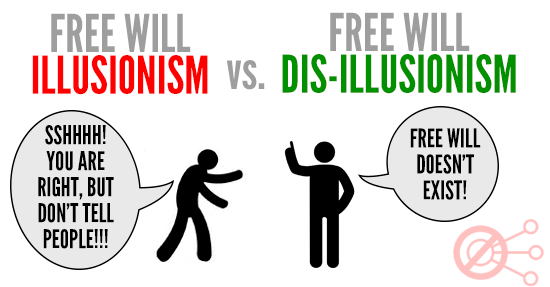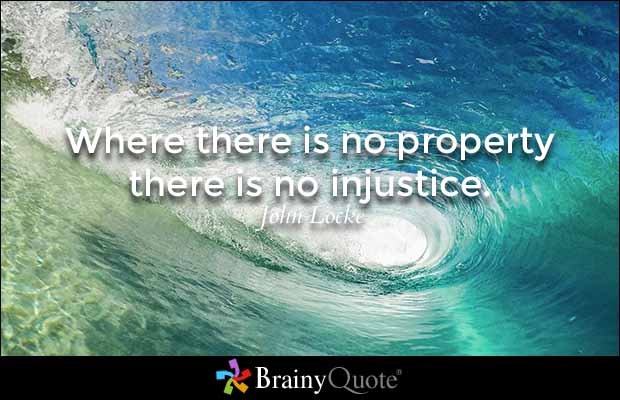How Do People Take Possession of Things?
How Do People Take Possession of Things?

Image Source
Method of taking possession of things;
Directly grasping it physically
Forming it
Marking it as theirs
These methods for taking possession include the progress from the classification of singularity to that of universality. It is just of a solitary thing that we can take possession physically, while marking a thing as our own is claiming it in idea. In the last case there is an idea of the thing and imply that the thing overall is theirs, not just the part which they can take into its possession physically. From the perspective of sensation, to get a handle on a thing physically is the most entire of these modes, since then they are straightforwardly present in this possession, and hence their will is conspicuous in it.
Because of the connection which they may impact amongst something and things which have just turned into their property in different routes, or into which something may some way or another be coincidentally brought, the extent of this strategy is to some degree broadened, and a similar outcome is delivered by different means too. Mechanical forces, weapons, tools, broaden the scope of my power. Connections amongst property and something else might be viewed as making it more effectively feasible for someone than for another proprietor, or now and then workable for only someone, to claim something or to make utilization of it.
Cases of such connections are that a land might be on the seashore, or on a stream bank, or an estate may walk with chasing nation or field or land helpful for some different purposes stone or other mineral deposits might be under a fields, there might be treasure in or under the ground. The same is valid for connections made by shot and consequent to possession, similar to some of what are called natural accessions, for example, alluvial deposits. On the other hand, the addition to property might be looked upon as a non-self-subsistent mishap of the thing to which it has been included. For each situation, these are external conjunctions whose obligation of connection is neither life nor the idea.
It reverts, thusly, on the comprehension to illustrate and weigh their pros and cons, and on positive enactment to settle on choices about them as per the degree to which the connection between the things conjoined has or has no centrality. Taking possession is constantly similar to a supper in sort, taking into possession close to what it touch with a body. However, here comes the second point, external objects broaden more remote than a man can get a handle on. Along these lines, whatever a man can get a handle on is connected with something else. It is with their hand that they manage to claim a thing, yet its scope can be broadened.

Image Source
What they grasp, that grand tool which no animal has, would itself be able to be a way to holding something else. In the event that they are in possession of something, the brains promptly draws the induction that it is not just the quick object in their grip which is theirs yet in addition what is associated with it. At the point when force a form on something, the thing's determinant character obtains a free externality and stops to be limited to its essence without a moment's hesitation and to the immediate nearness of its mindfulness and will.
To force a form on a thing is the method of taking possession most in conformity with the idea to this degree, that it infers a union of subject and object, in spite of the fact that it differs interminably with the subjective character of the objects and the assortment of subjective points. Under this head there likewise falls the formation of the natural. What they do to the natural does not stay external to it but rather is absorbed by it. Cases are the working of the dirt, the development of plants, the restraining in and nourishing of animals, the protection of game, and also creations for using raw materials or the forces of nature and procedures for making one material deliver impacts on another.
This forming of an object may practically speaking expect the most different pretenses. In cultivating land lets force a form on it. Where inorganic objects are concerned, the imposition of a form is not generally immediate. For instance, in the event that some person manufacture a windmill, he have not forced a form reporting in real time, but rather have formed something for using the air, however he is not on that record at freedom to call the air theirs, since they have not formed the air itself. Further, the saving of game might be viewed as a method for forming game, for they safeguard it with a view to keeping up the species. The same with the restraining of animals, just obviously that is a more straightforward method for forming them and it relies upon someone to a more noteworthy degree.
Man, as per his quick presence inside himself, is something natural, external to his idea. It is just through the advancement of his own body and brain, basically through his reluctance's dread of itself as free, that he claims himself and turns into his own property and nobody else. This claiming oneself is the interpretation into fact of what one is as per one's idea, for example a possibility, limit, intensity. In that interpretation one's reluctance interestingly winds up noticeably settled as one's own, as one's object additionally and particular from hesitance unadulterated and basic, and in this way fit for appearing as a thing.
The claimed support of slavery and in addition the defense of a slave-possession as basic lordship all in all, and every single authentic perspective of the equity of slavery and lordship, rely upon viewing man as a natural element immaculate and basic, as an existent not in conformity with its idea. The contention for the total shamefulness of slavery sticks to the idea of man as mine, as something intrinsically free. This view is uneven in seeing man as free by nature, or at the end of the day it takes the idea in that capacity in its quickness, not the idea, as reality. This antinomy rests, on the conceptual intuition which affirms both the snapshots of an idea in partition from each other and sticks to each of them in its autonomy thus in its deficiency to the idea and in its deception.

Image Source
Free personality consists accurately in its being never again certain or as idea alone, however in its rising above this formal phase of its being, until the presence which it provides for itself is one which is exclusively its own and free. The side of the antinomy which declares the idea of freedom accordingly has the value of inferring irrefutably the beginning stage, however just the beginning stage, for the revelation of truth, while the opposite side goes no more remote than presence without the idea and along these lines prohibits the standpoint of sanity and right by and large. The position of the through and through freedom is as of now ahead of time of the false position at which man, as a natural substance and just the idea verifiable, is hence equipped for being oppressed.
This false, nearly primitive marvel of slavery is one which comes upon mind when mind is just at the level of consciousness. The persuasion of the idea and of the simply prompt consciousness of freedom realizes by then the battle for acknowledgment and the relationship of master and slave. Be that as it may, that objective personality, the substance of the right, should never again be caught in its subjective idea alone, and consequently that man's outright unfitness for slavery should never again be secured as an insignificant should be, is something which does not get back home to our brains until the point that we perceive that the idea of freedom is really genuine just as the state.
To stick to man's total freedom, one part of the issue, is by that very demonstration to denounce slavery. However in the event that a man is a slave, his own will is in charge of his slavery, similarly as it is its will, which is dependable if a people is oppressed. Consequently the wrong of slavery lies at the entryway, not just of enslavers or victors, but rather of the slaves and the vanquished themselves. Slavery happens in man's change from the state of nature to truly moral conditions; it happens in this present reality where a wrong is still right. At that stage wrong has legitimacy as is fundamentally set up. The method of taking possession which in itself is not genuine but rather is just illustrative of my will is to mark the thing, and the significance of the mark should be that they have put their will into the thing. In its objective extension and its significance, this method of taking possession is extremely vague.
To take possession by marking a thing is of a wide range of taking possession the most total, since the mark is certainly at work to some degree in alternate sorts as well. At the point when a man get a handle on a thing or form it, this additionally implies in the final resort that they mark it, and mark it for others, so as to bar them and demonstrate that they have put their will into the thing. The idea of the mark is that the thing does not consider the thing which it is but rather as what it should imply. A rosette, for example, connotes citizenship of a state, however the color has no connection with the country and speaks to not itself but rather the country. By being ready to give a mark to things and along these lines to gain them, man just demonstrates his mastery over things.

Image Source

Your thought is very deep. Now We are slave of big marketing company
We buy product by seeing its brand not seeing its value. Both cheap and expensive watch show the same time but we buy branded one that is costly. We are now slave of big company.
Somehow, they are effective :)